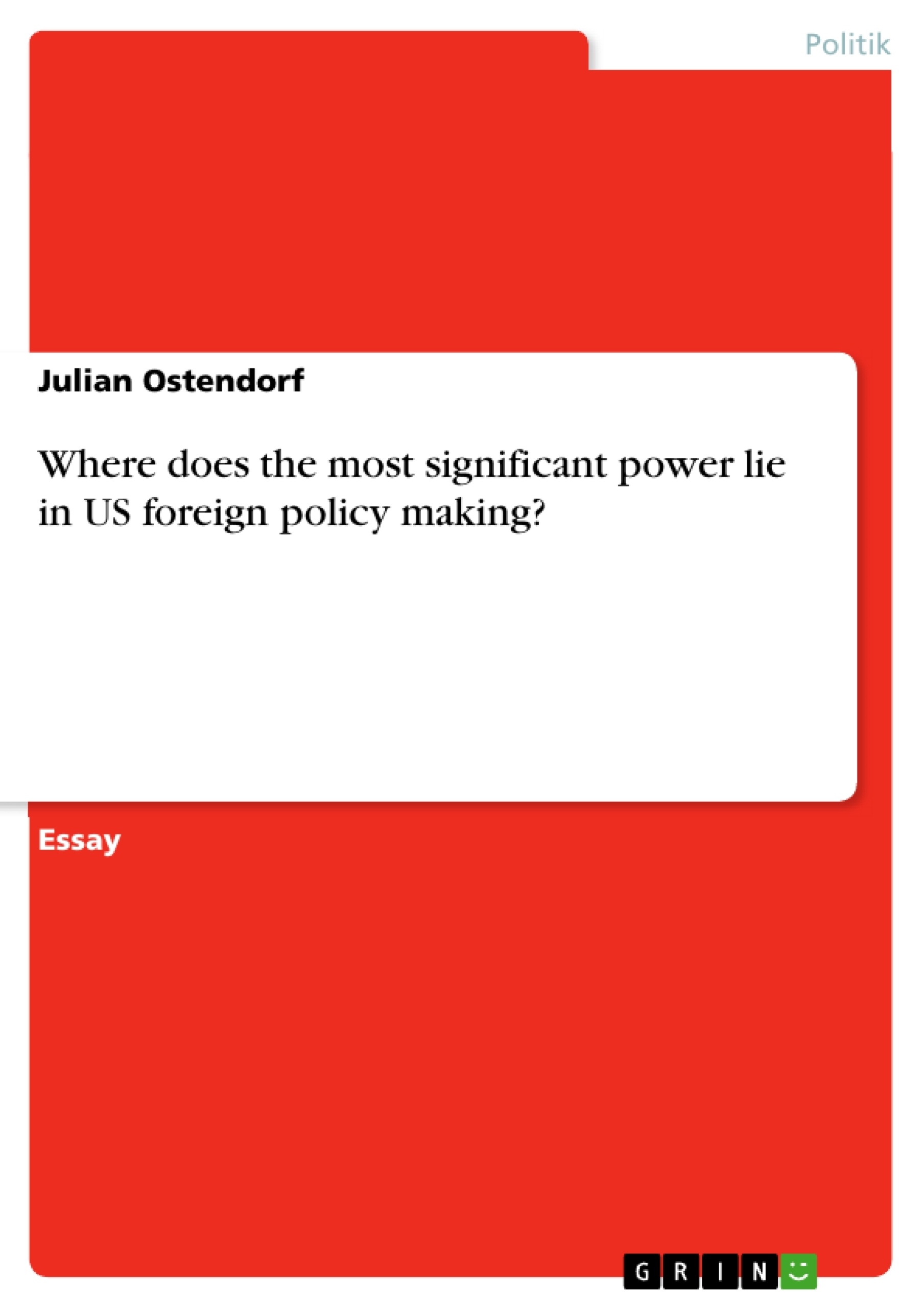Das Essay hinterfragt die strategische Ausrichtung der USA in der intrnationalen Politik im Bezug auf die Bekämpfung des internationalen Terrorismus und seine geostrategische Lage nach dem Kalten Krieg. Dabei steht zur Diskussion, welche die "stärksten" Mittel der Außenpolitik der USA sind, um ihre Ziele zu erreichen. Dazu zählen einsereits soft power-Methoden sowie hard power-Ansätze.
Inhaltsverzeichnis (Table of Contents)
- 1 Einleitung
- 2 Natur der US-Macht in den internationalen Beziehungen
- 3 Harte Macht: Auswirkungen unilateraler Zwangsmaßnahmen
- 4 Grenzen der harten Macht
Zielsetzung und Themenschwerpunkte (Objectives and Key Themes)
Diese Arbeit untersucht die wichtigsten Ressourcen der US-Außenpolitik und analysiert, welche Rolle sie bei der Erreichung außenpolitischer Ziele spielen. Sie konzentriert sich auf die Herausforderungen, die der globale Terrorismus für die amerikanische Politik darstellt und untersucht, wie sich die amerikanische Außenpolitik in Bezug auf die internationale Politik im Hinblick auf die wichtigsten Themen der US-Außenpolitik, die ihre Macht nach dem Kalten Krieg prägten, angepasst hat.
- Die Rolle der militärischen Macht in der US-Außenpolitik
- Die Bedeutung von "harter Macht" und "weicher Macht" in der US-Außenpolitik
- Die Auswirkungen der unilateralen amerikanischen Vorgehensweise in der internationalen Politik
- Die Bedeutung der internationalen Zusammenarbeit für die US-Außenpolitik
- Die Grenzen der militärischen Macht im Kampf gegen den Terrorismus
Zusammenfassung der Kapitel (Chapter Summaries)
- Kapitel 1: Einleitung
- Kapitel 2: Natur der US-Macht in den internationalen Beziehungen
- Kapitel 3: Harte Macht: Auswirkungen unilateraler Zwangsmaßnahmen
- Kapitel 4: Grenzen der harten Macht
Dieses Kapitel führt das Thema der Arbeit ein und stellt die Forschungsfrage nach der wichtigsten Quelle der US-Außenpolitik. Es wird argumentiert, dass die militärische Macht der USA im heutigen Zeitalter vorherrschend ist, aber ihre Auswirkungen begrenzt sind, wenn "weiche Macht" nicht effektiv eingesetzt wird.
Dieses Kapitel gibt einen Überblick über die wichtigsten Ressourcen der US-Außenpolitik, wobei die militärische Stärke, die Rolle der NATO und die Bedeutung von militärischer und wirtschaftlicher Hilfe hervorgehoben werden. Es wird zwischen "harter Macht" als Zwangsmaßnahme und "weicher Macht" als Mittel der Überzeugung unterschieden.
Dieses Kapitel analysiert die Auswirkungen der militärischen Macht der USA im Kampf gegen den Terrorismus, insbesondere die Kriege in Afghanistan und im Irak. Es wird argumentiert, dass die militärische Macht zwar kurzfristige Erfolge erzielen kann, aber langfristig nicht geeignet ist, Terrorismus zu bekämpfen.
Dieses Kapitel diskutiert die Grenzen der harten Macht im Kampf gegen den Terrorismus. Es wird argumentiert, dass Terrorismusnetzwerke aufgrund ihrer dezentralisierten Struktur und ihres Ziels, Schaden anzurichten, nicht durch militärische Interventionen besiegt werden können. Außerdem werden die negativen Folgen der unilateralen Politik der USA für die internationalen Beziehungen beleuchtet.
Schlüsselwörter (Keywords)
US-Außenpolitik, militärische Macht, "harte Macht", "weiche Macht", unilaterale Politik, multilaterale Politik, Terrorismus, Afghanistan, Irak, Internationale Beziehungen, Internationale Zusammenarbeit, westliche Bündnispartner.
- Citar trabajo
- Julian Ostendorf (Autor), 2011, Where does the most significant power lie in US foreign policy making? , Múnich, GRIN Verlag, https://www.grin.com/document/174421



